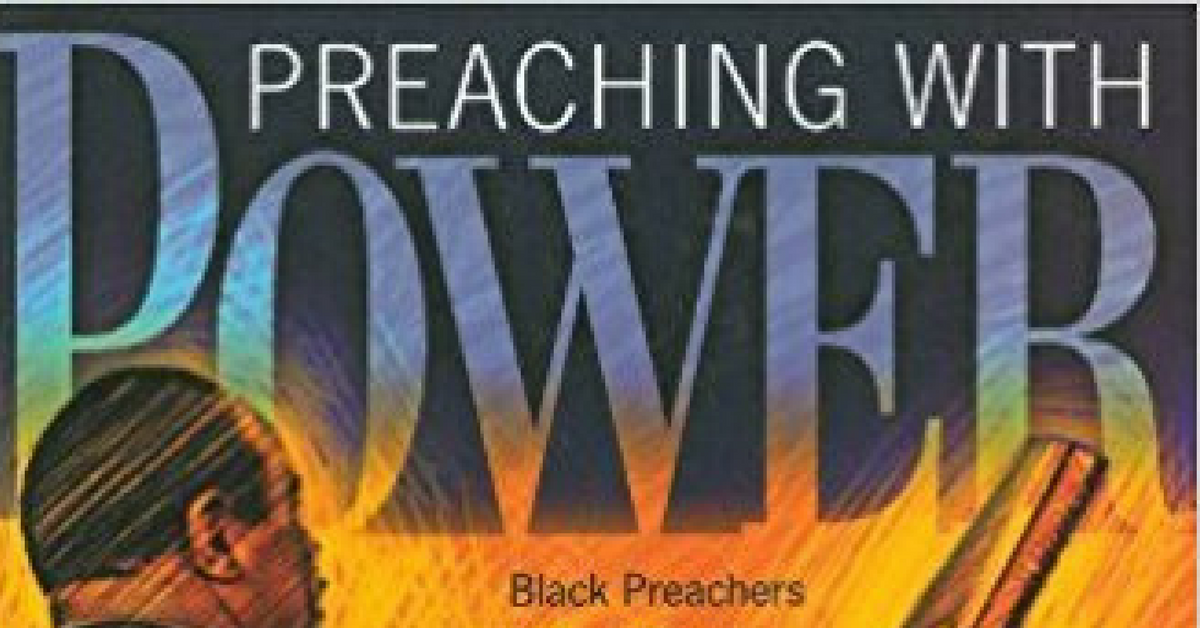 We have finally come to the final preacher in Dr. Clifford Jones’ book Preaching with Power. In this post we will look at the chapter that contains the interview with G. Ralph Thompson. Pastor Thompson is the former secretary of the General Conference of Seventh-day Adventists.
We have finally come to the final preacher in Dr. Clifford Jones’ book Preaching with Power. In this post we will look at the chapter that contains the interview with G. Ralph Thompson. Pastor Thompson is the former secretary of the General Conference of Seventh-day Adventists.
Understanding of Preaching
Thompson believes that preaching is having the message of God permeate the preacher to the point where the preacher can embody the message. To put it in his words, Thompson says, preaching is “God’s message by God’s men or women to God’s people.” (page 148)
Method of Sermon Preparation

Pastor Thompson described his method as reading several translations and then read the commentaries. Then he finds a thesis for his sermon followed by the creation of an outline and then he puts meat on the outline.
Pastor Thompson says that he finds illustrations from biographies, autobiographies, and from daily life. He is quick to note that he makes use of the spiritual disciplines to keep the connection to heaven. Thompson also emphasizes that we connect the time of the Bible to the present time by paying attention to the connections. Thompson believes that if you pay attention you will see that we deal with the same issues that the Bible characters dealt with and that we can connect the two times (Bible and contemporary) easily when we recognize this.
Understanding of Black Preaching
Pastor Thompson, like many others in the book, believes that Black Preaching is more about content than style. He notes that Black Preaching comes out of the context of the Black Experience. He notes that he orginally had a problem with the very idea of Black Preaching, but has come to aknowledge its existence and even appreaciate it. Once again I like how these authors seek to find a theological foundation for Black Preaching rather than the stylistic components that some would seek to say is the basis of its uniqueness.
Understanding of Adventist Preaching
Pastor Thompson emphsizes that he is not a Baptist, Methodist, or Church of God preacher and thus his messages should not sound like theirs. He attempts to preach a unique Seventh-day Adventist message that he connects to the “Great Controversy” theme.
While he wants to emphasize that he is an Adventist preacher, Thompson also wants to be known as a preacher of Christ. Thompson keeps the unique Adventist thrust as well as the Christ-Centered thrust by looking for Christ in the doctrines. This is something that many have talked about, but needs to be fleshed out a little more. How can one preach both Christ and all of the doctrines of Adventism?
I have saught to answer some of this on my blog, but I also must mroe clearly articulate this especially since many are saying this is what to do. Perhaps some of the problem is the lack of Adventist homiletics texts. There are not that many books that teach Adventist preaching and thus few have attempted to attack this question head on. It is my hope that more such resources will become available as time goes on.





 Dr. Williams was strongly influenced by two individuals. First is Barbara Jordan. Second is Chuch Swindall whose story telling ability attracted Dr. William’s attention. She believes that the preacher’s responsibility is to be a mouthpiece of God. In addition the preacher should be a prophet. She separates the prophet function into foretelling as well as forthtelling. While she does not believe that she has the ability to foretell the future, she does accept the forthtelling which is to preach with confidence to God’s people.
Dr. Williams was strongly influenced by two individuals. First is Barbara Jordan. Second is Chuch Swindall whose story telling ability attracted Dr. William’s attention. She believes that the preacher’s responsibility is to be a mouthpiece of God. In addition the preacher should be a prophet. She separates the prophet function into foretelling as well as forthtelling. While she does not believe that she has the ability to foretell the future, she does accept the forthtelling which is to preach with confidence to God’s people.